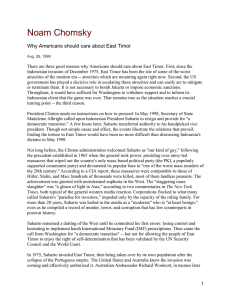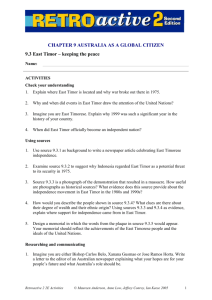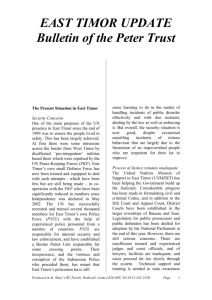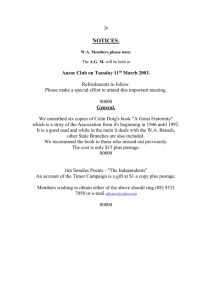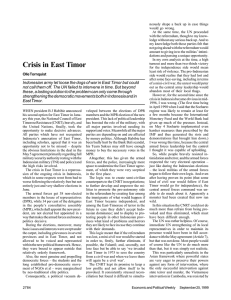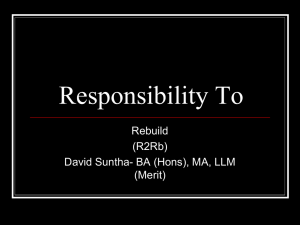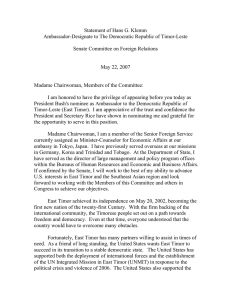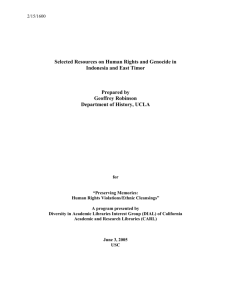In East Timor, a sense of injustice drives chaos
advertisement
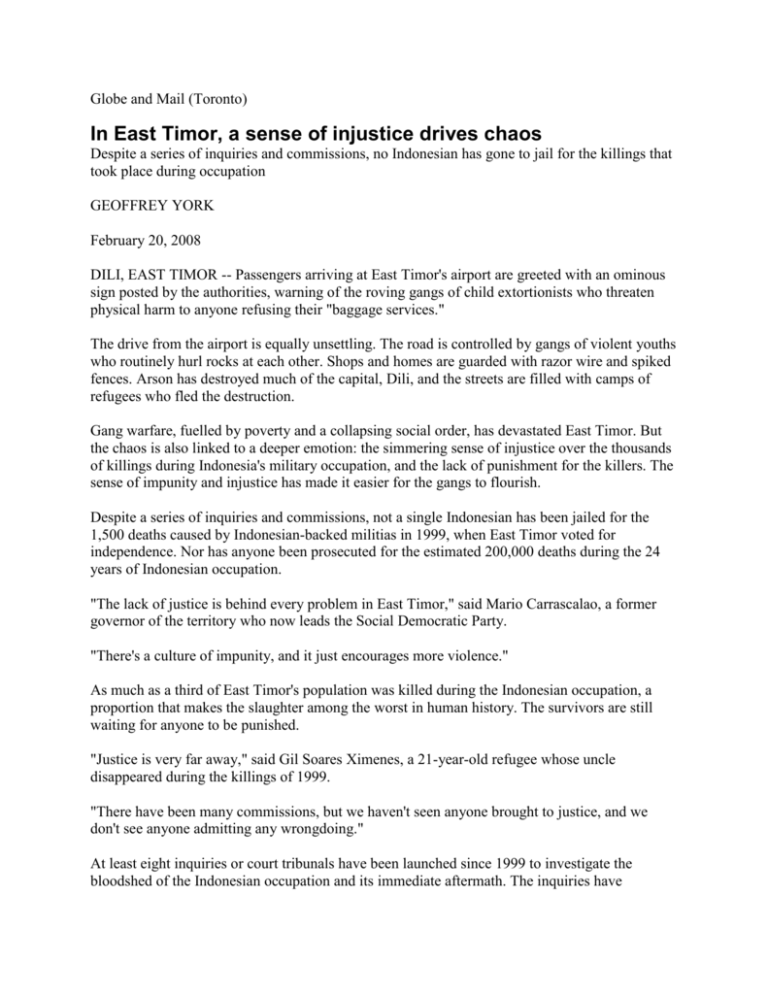
Globe and Mail (Toronto) In East Timor, a sense of injustice drives chaos Despite a series of inquiries and commissions, no Indonesian has gone to jail for the killings that took place during occupation GEOFFREY YORK February 20, 2008 DILI, EAST TIMOR -- Passengers arriving at East Timor's airport are greeted with an ominous sign posted by the authorities, warning of the roving gangs of child extortionists who threaten physical harm to anyone refusing their "baggage services." The drive from the airport is equally unsettling. The road is controlled by gangs of violent youths who routinely hurl rocks at each other. Shops and homes are guarded with razor wire and spiked fences. Arson has destroyed much of the capital, Dili, and the streets are filled with camps of refugees who fled the destruction. Gang warfare, fuelled by poverty and a collapsing social order, has devastated East Timor. But the chaos is also linked to a deeper emotion: the simmering sense of injustice over the thousands of killings during Indonesia's military occupation, and the lack of punishment for the killers. The sense of impunity and injustice has made it easier for the gangs to flourish. Despite a series of inquiries and commissions, not a single Indonesian has been jailed for the 1,500 deaths caused by Indonesian-backed militias in 1999, when East Timor voted for independence. Nor has anyone been prosecuted for the estimated 200,000 deaths during the 24 years of Indonesian occupation. "The lack of justice is behind every problem in East Timor," said Mario Carrascalao, a former governor of the territory who now leads the Social Democratic Party. "There's a culture of impunity, and it just encourages more violence." As much as a third of East Timor's population was killed during the Indonesian occupation, a proportion that makes the slaughter among the worst in human history. The survivors are still waiting for anyone to be punished. "Justice is very far away," said Gil Soares Ximenes, a 21-year-old refugee whose uncle disappeared during the killings of 1999. "There have been many commissions, but we haven't seen anyone brought to justice, and we don't see anyone admitting any wrongdoing." At least eight inquiries or court tribunals have been launched since 1999 to investigate the bloodshed of the Indonesian occupation and its immediate aftermath. The inquiries have produced voluminous evidence of the Indonesian military's involvement in murder and other crimes in East Timor, yet their recommendations have been ignored. Indonesian courts found 18 people guilty of atrocities in East Timor, but almost all were set free when their convictions were overturned. The only conviction to be upheld was that of a Timorese militia leader. Indonesia's former military chief, General Wiranto, was indicted in East Timor for his leading role in the violent attacks of 1999, but the East Timor government has opted not to seek his arrest through Interpol because it wants to maintain "friendship" with Indonesia. It knows that East Timor is heavily dependent on Indonesian exports and it knows that the country would suffer hugely if Indonesia cut off supplies to the newly independent country. For the same reason, East Timor's leaders have rejected the widespread calls for an international tribunal to prosecute those who perpetrated the slaughter of 1999. Instead, with Indonesia's support, it has created the "Truth and Friendship Commission," a toothless inquiry that can offer amnesty to anyone who testifies before it. The commission, boycotted by the United Nations and widely seen as a whitewash, has allowed Indonesia's military officers to testify in closed-door sessions where they deny any wrongdoing. The military leaders are rarely questioned in any systematic way. "It hurts me inside when they deny that they supported the killings and they deny that they were behind it all," said another refugee, 25-year-old Artur Gomes, who is still waiting for anyone to be prosecuted for the murder of his cousin by Indonesian-backed militias in 1999. "It's been many years already and we've seen no truth and no justice," he said. "Deep in our heart, there is a wound that needs to be healed. We know that Indonesia could get angry and cut off our supplies if we issue an arrest warrant, but we choose justice, no matter what the risk. We want them to come here and admit what they did." "The commission hasn't been serious enough about investigating the truth," said Jose Texeira, a lawyer and former cabinet minister in East Timor. "It's a discredited process. The message from the international community is that we should forget about justice. We are seen as insignificant." An earlier inquiry, supported by the United Nations, produced a 2,500-page report that documented Indonesia's involvement in bloodshed from 1975 to 1999. It called for an international tribunal to prosecute those responsible if no other legal process was working. To pre-empt those calls, the East Timor government set up the truth and friendship commission instead. "The commission is just a waste of money," said Jose Luis de Oliveira, director of a humanrights group in East Timor. "It represents the interests of the Indonesian generals and it justifies their crimes. When a witness describes a rape, the Indonesian officers are laughing. It makes us feel pain." © Copyright 2008 CTVglobemedia Publishing Inc.
